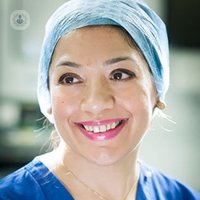Is taking the pill risky?
Written by:Taking the pill can be a minefield and women often worry about the risks associated with it. In this article, leading consultant obstetrician and gynaecologist Dr Shazia Malik is here to discuss a recent study and to put your mind at ease and debunk myths about the pill.
Can the pill increase my risk of breast cancer?
Despite popular reports, the risk of developing breast cancer under the age of 50 is relatively low, no matter which type of concentration you take. If you are in your 20s or 30s, the risk of developing breast cancer is extremely low, therefore I advise that you do not panic about this.
You must remember that cancer-risk statistics that you read in the news are expressed as percentages of existing numbers that are actually very low.

For a 30-year-old, the likelihood of developing breast cancer in the next ten years is less than 1 per cent, meaning that a 26 per cent increase on that — the rise associated with taking the progestogen-only pill for five years in this recent study — is still very very low. Additionally, the figure for a 40-year-old is roughly 1.6 per cent, meaning that her risk also goes up by 26 per cent, signifying a two per cent overall risk which, again, is very low.
How is research around the pill progressing?
In the past 10 -15 years, women have been making changes regarding the contraception that they choose. Many women have opted to stop using the combined oestrogen and progestogen pill, as a result of unwanted side effects. Instead, they are choosing to use progestogen-only contraceptives. In the UK there are currently almost the same number of women using the progestogen-only mini pill as the combined pill.
A surprising result of the study is that the risk for the progestogen-releasing coil is higher than for either the combined or progestogen-only pill. Doctors find it difficult to understand this because levels of circulating hormone are a lot lower with the coil than with oral contraception. The risk theoretically should be lower, too. This is an anomaly that requires investigation.
Do the benefits of the pill outweigh the risks?
The pill and the coil have numerous advantages and can significantly impact quality of life for women who are in their reproductive years. These methods of contraception help women who are suffering from periods which are very heavy and as a result, are debilitating, as well as women who are suffering from chronic pain and of course, these contraceptives can prevent unwanted pregnancies.
Breast feeding mothers can use the progestogen-only pill or coil, while the combined pill has been proven to reduce the risk of ovarian, endometrial and colon cancers.
Women should not be put-off by the tiny level of risk associated with hormonal contraception while there are so many benefits associated with it. In my opinion, this study is just one piece of information to use when advising women about what form of contraception is best for them.
It is essential to treat each case individually through through assessment of the lifestyle and overall health of the patient, before helping them to make a decision.
Pharmacists can also play a role in women’s reproductive health, because since 2021, the progestogen-only pill can be bought at a pharmacy without a prescription.
If you would like more advice about contraception and are interested in booking an appointment with Dr Malik, don’t hesitate to visit her Top Doctors profile today.


